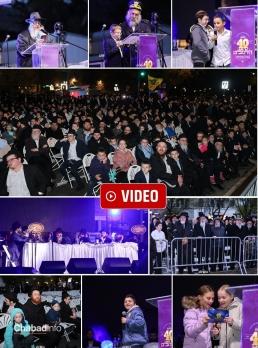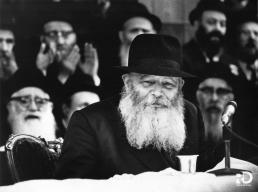‘Kazakhstan’s Jewish Community is Prospering,’ says Chief Rabbi
Following the escalation of riots and ongoing violence in Kazakhstan, the country’s Senior Shliach and Chief Rabbi Yeshaya Elazar Cohen reassured those who reached out to him over the past several days and thanked them for their prayers for peace and tranquility • Full Story, Photos
About 3,000 Russian “peacekeepers” are estimated to have arrived in Kazakhstan following the president’s request after the escalation of riots in the country.
It was reported today (Thursday) that during the demonstrations today two policemen were beheaded. Kazakhstan’s state television reported 12 policemen killed so far in the riots in the city of Almaty, and a total of 353 policemen and security forces were injured.
The Russian news agency reported from the Kazakh Interior Ministry that the police had arrested about 2,000 people in Almaty. Meanwhile, Kazakhstan banned foreigners from entering the country.
Senior Shliach and Chief Rabbi Yeshaya Elazar Cohen reassured those who reached out to him with the following message:
“Thank you to all those who are care about the safety of the community, and the Shluchim living here. We are all fine, there are riots in several centers in the country. The Internet is blocked here to keep citizens safe. Occasionally it opens back up.
In the merit of The Mara D’asra, the father of the Rebbe, and the blessings of the Rebbe, will stand for the State of Kazakhstan, for the citizens of the state, for the Jewish community, which will continue to prevail in the country. Thank you for the prayers for peace and tranquility, and thank you for your care. ”
The revolt began on Sunday in western Kazakhstan as a protest against a surge in fuel prices. Four days later, with government buildings, TV stations, the airport and numerous businesses stormed by thousands of anti-government protesters, the uprising has expanded into a full-throated attack on an entrenched Kazakh elite widely reviled as autocratic and corrupt.
On Thursday, a police spokeswoman said dozens of people had been killed by the authorities when they tried to storm government buildings, police headquarters and district police offices, the first widespread fatalities involving protesters since the demonstrations started. That announcement came after earlier reports in the local news media that the police had opened fire on demonstrators in the oil city of Atyrau, killing at least one person.
Footage posted online on Wednesday showed thousands of people storming the main government building in the country’s largest city, Almaty.
Smoke billowed from the building that afternoon as the crowd began to disperse. The regional branch of the governing Nur Otan party was also set on fire, local news outlets reported, as was the former presidential residence.
News services reported renewed clashes between protesters and the police, who used stun grenades and tear gas to quell the crowd. Protesters also set fire to the prosecutor’s office in Almaty before heading for the president’s residence.
The Almaty police said that protesters burned 120 cars, including 33 police vehicles, and damaged about 400 businesses, and that more than 200 had been detained. The country’s Internal Affairs Ministry said that eight members of law enforcement had died in the clashes.
The protests began peacefully Sunday in the oil town of Zhanaozen, after the government doubled the cost of liquefied petroleum gas — used to fuel vehicles in Kazakhstan — to about 100 tenge, or 22 cents, per liter. By the time the government announced on Tuesday that it would rescind the price increase, the protests had spread across the country, with broader demands for increased political representation and improved social benefits.
Apparently unsatisfied by an announcement early Wednesday that the entire government would be sacked and that new parliamentary elections were possible, protesters took control of the country’s main airport.
The protests reverberated across the continent to Moscow, where President Vladimir V. Putin was forced to witness another uprising against an authoritarian, Kremlin-aligned nation, following pro-democracy protests in Ukraine in 2014 and in Belarus in 2020.
Kazakhstan, with a population of 19 million, is by far the richest country in Central Asia, with a GDP per capita of $27,000 and more than $35 billion in reserves, yet it was still possible for the country to devolve into chaos in a matter of days.
The instability is a potential source of concern among foreign oil companies, particularly in the United States. ExxonMobil and Chevron have invested tens of billions of dollars in western Kazakhstan, the region where the unrest began this month. A Chevron-led consortium is in the midst of a project to expand output at the on-land Tengiz oil field at an estimated cost of $37 billion, one of the single largest energy investments in the world today.
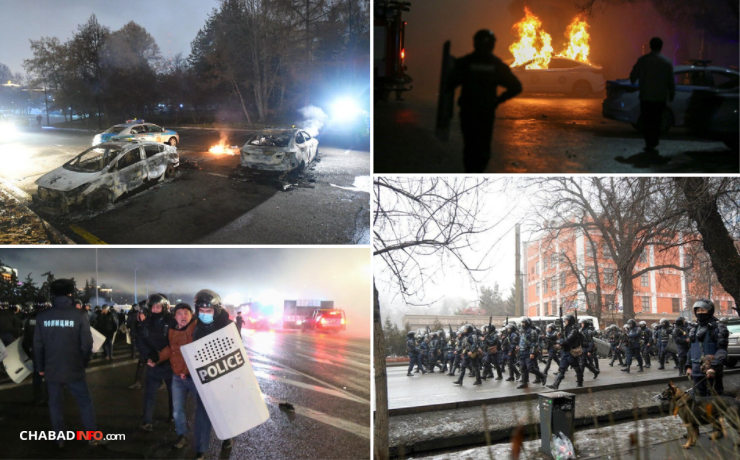


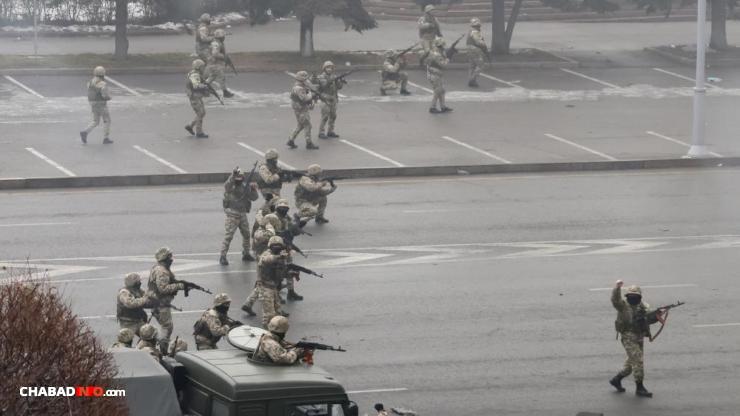


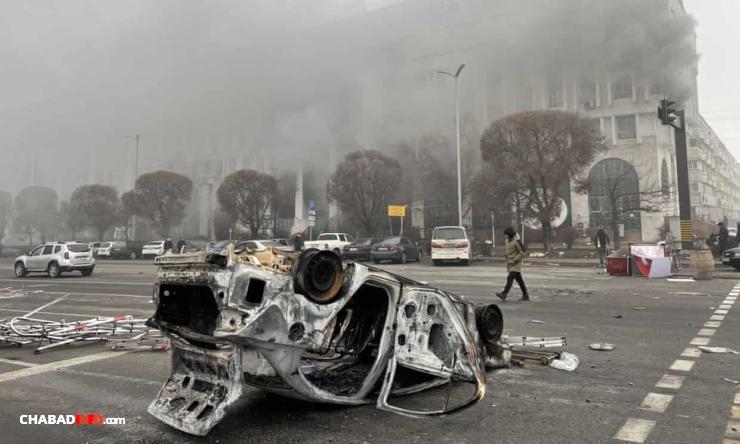


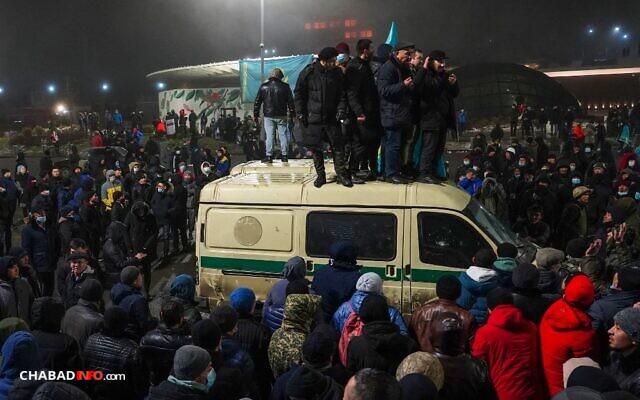


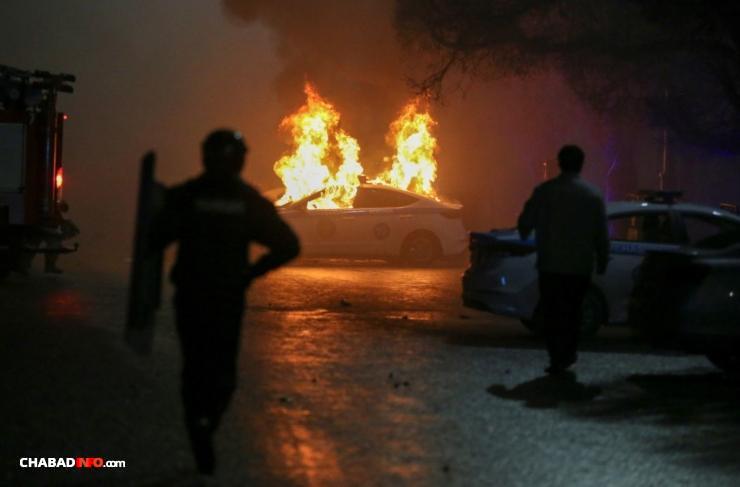





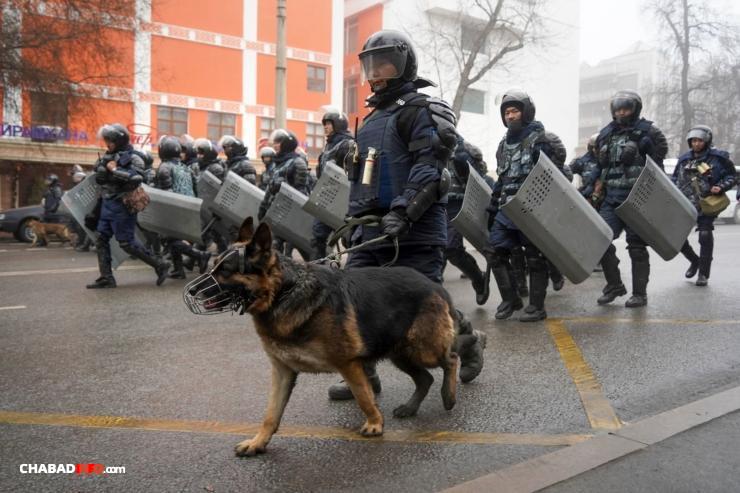


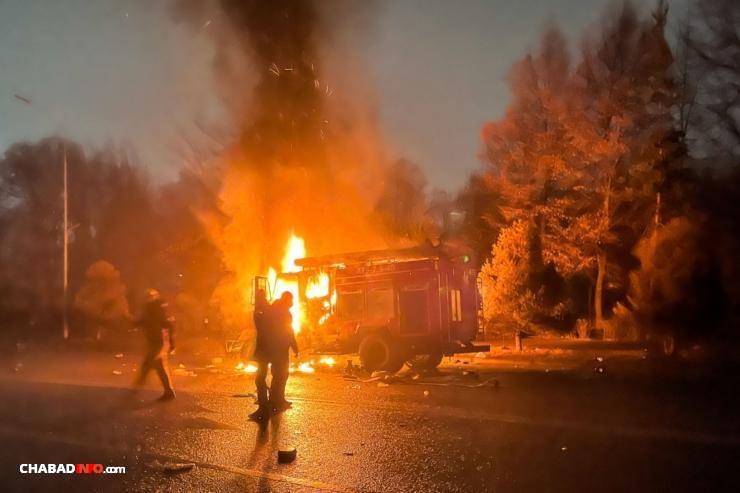











160
Join ChabadInfo's News Roundup and alerts for the HOTTEST Chabad news and updates!















